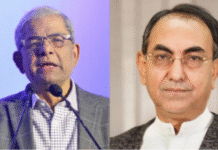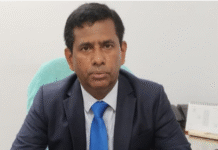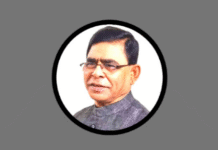‘River erosion in Bangladesh displaces 68,000 annually’

Some 68,000 people are annually displaced by river erosion in Bangladesh, disaster management and relief ministry senior secretary Shah Kamal has said.
“Bangladesh is a disaster-prone country. Around 10,000 hectares of land are also affected by river erosion,” he told a workshop for adoption of the revised ‘National Strategy on the Management of Disaster and Climate Induced Internal Displacement’.
The day-long workshop was organised at BRAC Centre Inn in the capital on Tuesday by Refugee and Migratory Movements Research Unit (RMMRU), Bangladesh Center for Advanced Studies (BCAS), International Centre for Climate Change and Development (ICCCAD), Centre for Climate Change and Environmental Research (C3ER) and Raoul Wallenberg Institute (RWI) Bangladesh.
Speaking as the special guest at the concluding session, Shah Kamal said more people migrate due to various reasons including landslides, salinity in water and man-made disasters.
Four per cent of the people migrate from Satkhira and Khulna due to salinity in the region, he added.
A draft document of National Strategy on the Management of Disaster and Climate Induced Internal Displacement was presented to Enamur Rahman, the state minister for disaster management and relief.
“We will take this document that was presented today for inter-ministerial review. We believe that the national strategy once adopted will guide us to better prepare plans and respond to short term and long term needs of displacement”, said Enamur Rahman while speaking as the chief guest at the event.
Chairing the session, PKSF chairman and economist Qazi Kholiquzzaman Ahmad said the whole world is heading towards disaster as the emission of green house gas is increasing.
He said Bangladesh is the most affected country due to climate change.
A large number of people will be displaced for sure, so the government has to prioritise while spending funds.
The workshop observed that forced displacement driven by disaster and climate change poses as a threat to national security and stability. In 2018 alone, more than 17 million people worldwide were newly displaced by the sudden onset of disasters linked to cyclones, storms, floods, and other natural hazards.
Bangladesh is the top-ranking country in the world to face the adverse consequences of climate change that will lead to millions of people being internally displaced, it added.
RMMRU founding chair Tasneem Siddiqui said the ministry of disaster management and Relief in September 2015 initiated the development of the National Strategy on the Management of Disaster and Climate Induced Internal Displacement (NSMDCIID).
As several major developments at global level took place since the draft strategy was prepared, the government decided to update and revise the strategy, she said adding the revised strategy was presented at the workshop to secure input from the wider civil society.
Tasneem Siddiqui urged the government to adopt the national strategy through inter-ministerial action.
She also mentioned that the national strategy is a right-based document which will help government to attain different goals of SDGs.
While moderating a session in the morning hours, executive director of Bangladesh Centre for Advanced Studies Atiq Rahman said, “We have good policies but face problems in implementing them.”
Disaster management and relief ministry additional secretary Md. Mohsin said, “We need accurate data of displaced people for their integration, employment and decent livelihoods.”
NGO officials suggested that the rights of the displaced people have to be ensured.
Speaking as special guest, DFID country representative Judith Herbertson said Bangladesh is mostly affected by the climate change. One in every seven people will be affected in Bangladesh, she added.
Representative, Department for International Development (DFID), Bangladesh attended the workshop
Adviser of BRAC University Ainun Nishat and professor of Institute of Disaster Management and Vulnerabilities at Dhaka University, Mahbuba Nasreen, among others, moderated the workshop attended by climate experts, NGO officials and civil society members.









